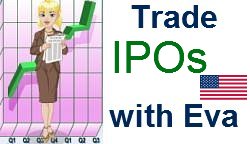William A. Ackman, the head of Pershing Square Capital Management, one of the most closely watched hedge fund managers, is weighing whether to raise capital for a new fund through an initial public offering, according to people briefed on the matter.
Mr. Ackman is planning to raise billions of dollars for a closed-end fund that would be listed on an exchange, one of these people said, adding that the plans were not complete. The firm itself would not go public.
Still, Mr. Ackman has been vocal about his desire to find a more permanent base of capital. In his most recent letter to investors, Mr. Ackman wrote that a more stable capital base would allow him to invest more freely, without the worry that money could be withdrawn during times of distress. That, in turn, he contends, would allow him to produce greater returns since he would no longer have to keep money sidelined in case investors want it back.
The successful creation of a public fund could inspire other hedge funds to follow suit, given Mr. Ackman’s influential reputation in the industry.
So-called sticky money has become something of an obsession for hedge fund managers. Some funds lost billions of dollars when investors demanded their money back during the financial crisis, forcing them to sell into the market’s downward spiral. The funds that tried to block the withdrawals — a controversial practice known as gating — only created ill will among their investors.
As a result, some hedge fund managers, who normally prize the private nature of their business, are increasingly turning to the public markets to work around the problem.
Philip Falcone, the embattled chief of Harbinger Capital Partners, bought a publicly traded shell company to hold certain investments. Brevan Howard and CQS Management, two British hedge funds, have created publicly listed funds to invest.
And a few hedge funds have gone public, including Och-Ziff Capital Management and the Fortress Investment Group. Those firms did not publicly raise money for investing, however.
Other hedge funds have spurned public solutions and have instead demanded that investors sign contracts that prevent them from pulling their money for a certain number of years, though that has been a tough sell since the financial crisis. Many funds are insulated because much of the money in their fund belongs to employees, who are less likely to withdraw their investments in a panic.
In the case of Mr. Ackman, only about 10 percent of the assets he invests belong to him and his employees.
His possible plan for a public fund comes at a time of impressive returns at the firm, which currently oversees some $10 billion. An activist investor, he takes large stakes in public companies then agitates for change. That strategy has produced annual average gains of 20 percent since 2004.
At 45, Mr. Ackman is no stranger to the limelight, cultivating a public persona that radiates both boyish charm and classroom smart aleck. He frequently takes his campaigns to the media, calling on management to make changes to their businesses and fighting for seats on the corporate boards. He took home $390 million last year, AR magazine estimated.
Mr. Ackman is a concentrated investor, ignoring the popular consensus on the importance of diversification by putting his money into just eight to 10 positions at a time. Investing a small amount in numerous companies is a strategy for those who do not know what they are doing, he has said.
Among Mr. Ackman’s most lucrative trades was the mall operator General Growth Properties, which he began investing in during the depths of the financial crisis. Mr. Ackman argued that its rich portfolio of properties, like the Tysons Galleria in Northern Virginia and Water Tower Place in Chicago, were worth far more than what the market thought.
From the start, he loudly and publicly urged the company to file for bankruptcy, which it did in April 2009. He then lent the company $375 million to continue operating in bankruptcy, which granted him more say in matters.
Eventually, he pushed the company to split in two and became chairman of a spinoff containing some of the properties the company considered undervalued. The flagship company, meanwhile, emerged from bankruptcy last year and the share price skyrocketed. On Thursday, the company’s shares closed at $15.94. Mr. Ackman bought his stake in the company for less than $1 a share.
At a conference late last year, Mr. Ackman said the trade was “the best bet of my life.”
But his losses are often as public as his wins.
In 2007, Mr. Ackman formed a $2 billion special fund for an investment in one specific company: Target. He mounted a public campaign, hoping to unlock value by pushing the company to sell its credit card receivables business and the real estate under its stores. The company conceded on certain points but remained defiant, a posture that ended in a bitter showdown that Mr. Ackman lost when he failed to get enough shareholder votes to unseat members of the company’s board.
One of his most recent victories came this week. Last October, the money manager disclosed a significant stake in J. C. Penney, which back then was trading below $30. On Thursday, the stock, which rose sharply earlier in the week on news that Ron Johnson of Apple would be its next chief executive, closed at $34.27.
Mr. Ackman has a paper profit of more than $450 million on his shares as a result.
















